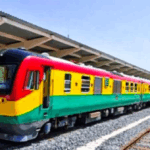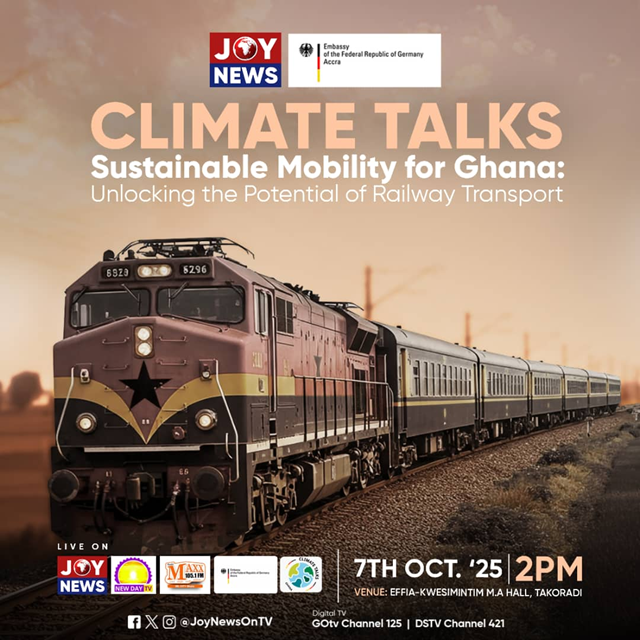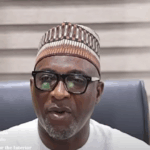
Globally, countries are stepping up efforts to embrace cleaner, faster, and more sustainable transport solutions.
Sustainable train mobility not only offers a more comfortable way to travel, easing daily life, but also helps nations meet global emission reduction targets.
In Ghana, however, the story is different. Our economy remains heavily reliant on road transport, which carries nearly all goods and passengers across the country. This dependence has come at a cost: congestion, road accidents, and rising emissions. Meanwhile, the railway system once a lifeline of Ghana’s economy has been left behind.
From its peak in the 1960s, when rail accounted for about 29% of the nation’s transport network, Ghana’s railway accessibility has declined to 0.6% today.
Once vibrant routes linking the south to the north, especially those serving cocoa, bauxite, and manganese industries, have fallen silent.

In 2010, an ambitious agreement was signed to rebuild rail lines through the Northern Belt touted as Africa’s largest railway project but progress has remained slow.
Now, with new industries emerging and fresh mineral discoveries on the horizon, the question is clear: Can Ghana revive its railways as a cleaner, safer, and more sustainable alternative to roads?
The fifth edition of the German Embassy and JoyNews Climate Talks seeks to provide answers. With the theme “Sustainable Mobility for Ghana: Unlocking the Potential of Railway Transport”, the dialogue will convene policymakers, industry leaders, and transport experts in Takoradi to discuss how to overcome the challenges, tap into opportunities, and chart a path to transforming Ghana’s railway sector.
The event will air live at 2pm on JoyNews, New TV, and across all social media platforms on 7th October 2025, from the Assembly Hall of the Effia Kwasimintim Municipal Assembly.
If Ghana can put its railway back on track, it won’t just revive a lost legacy rather, it will power a new era of cleaner, smarter, and sustainable transport that drives growth, connects communities, and secures a greener future for generations to come.



